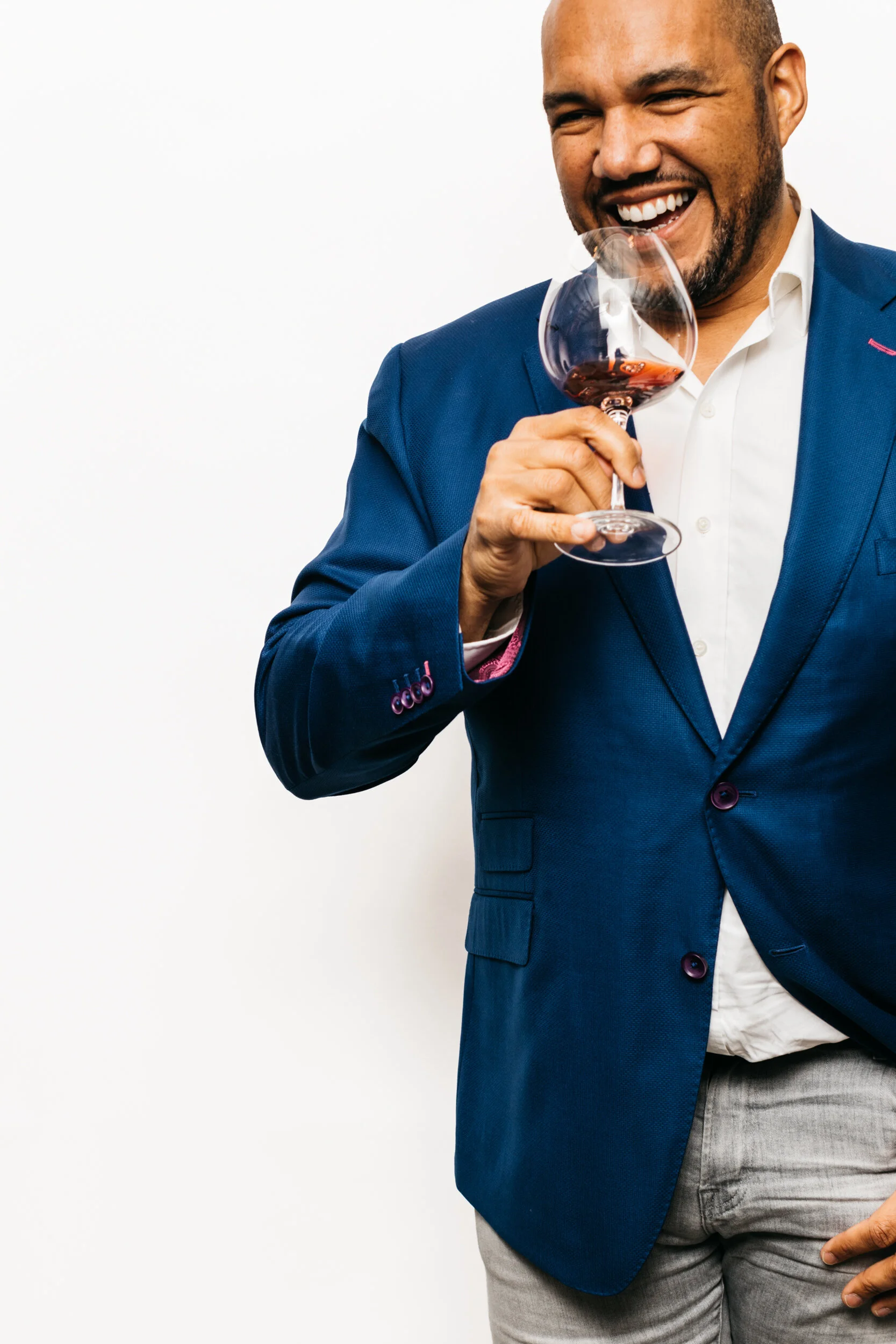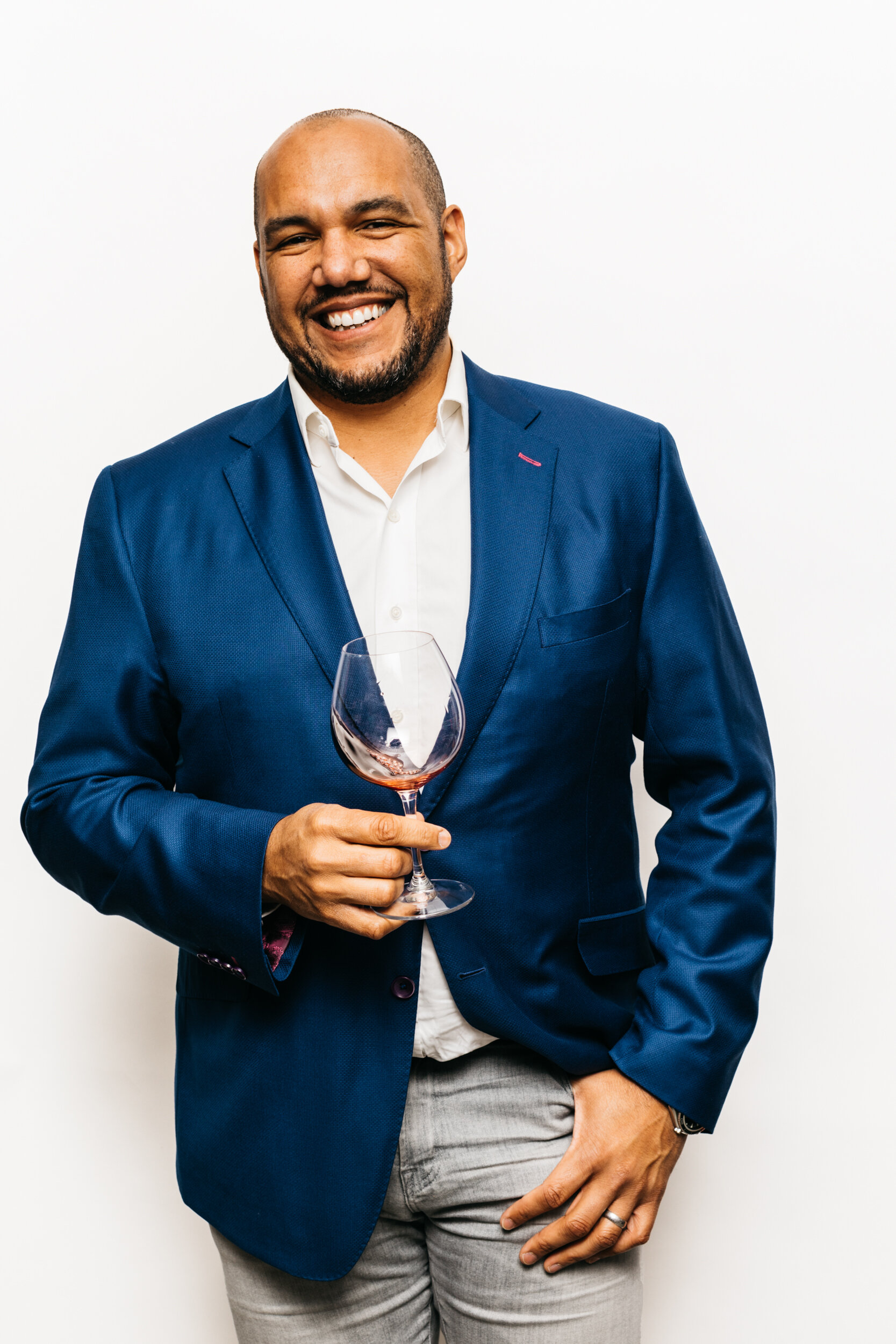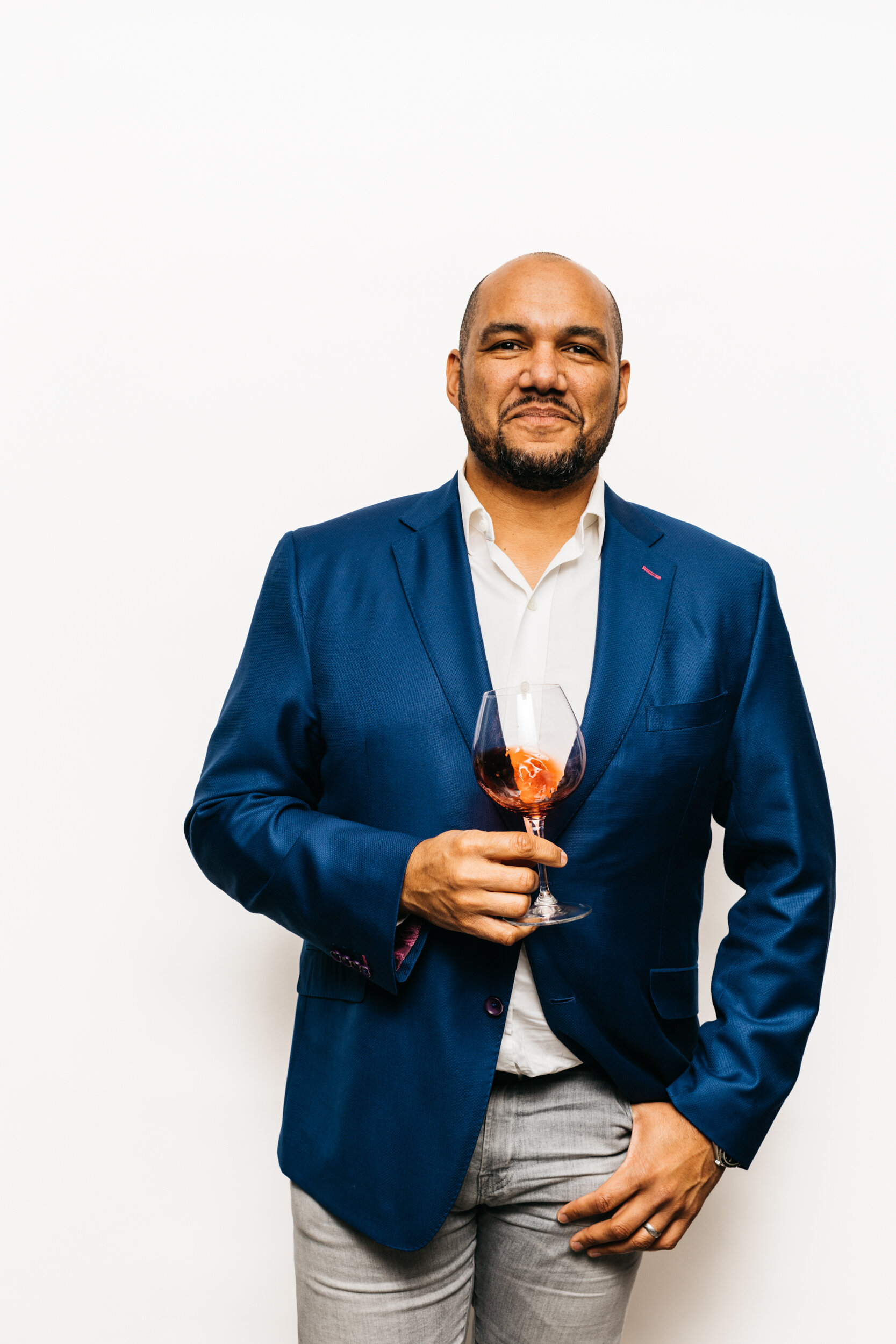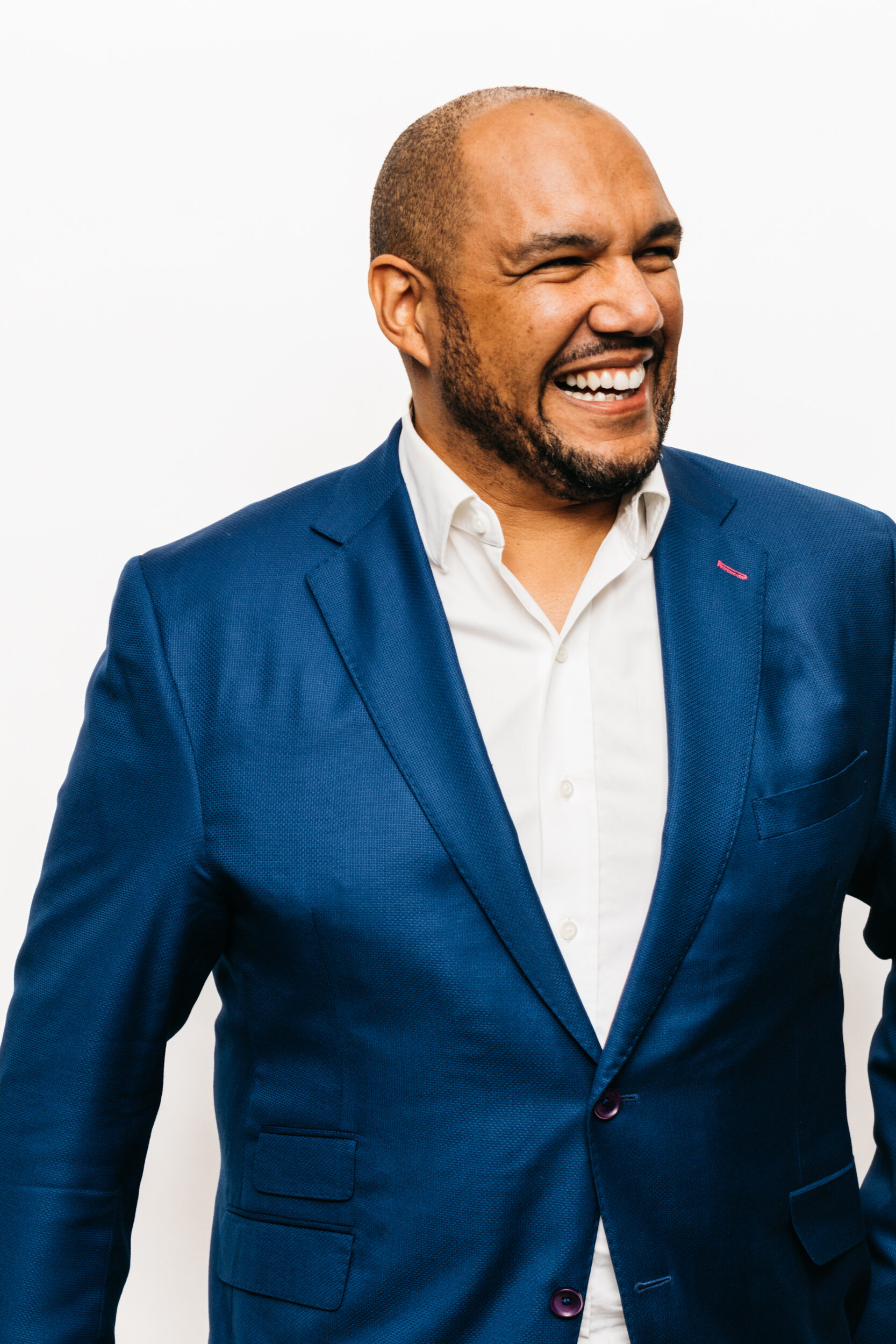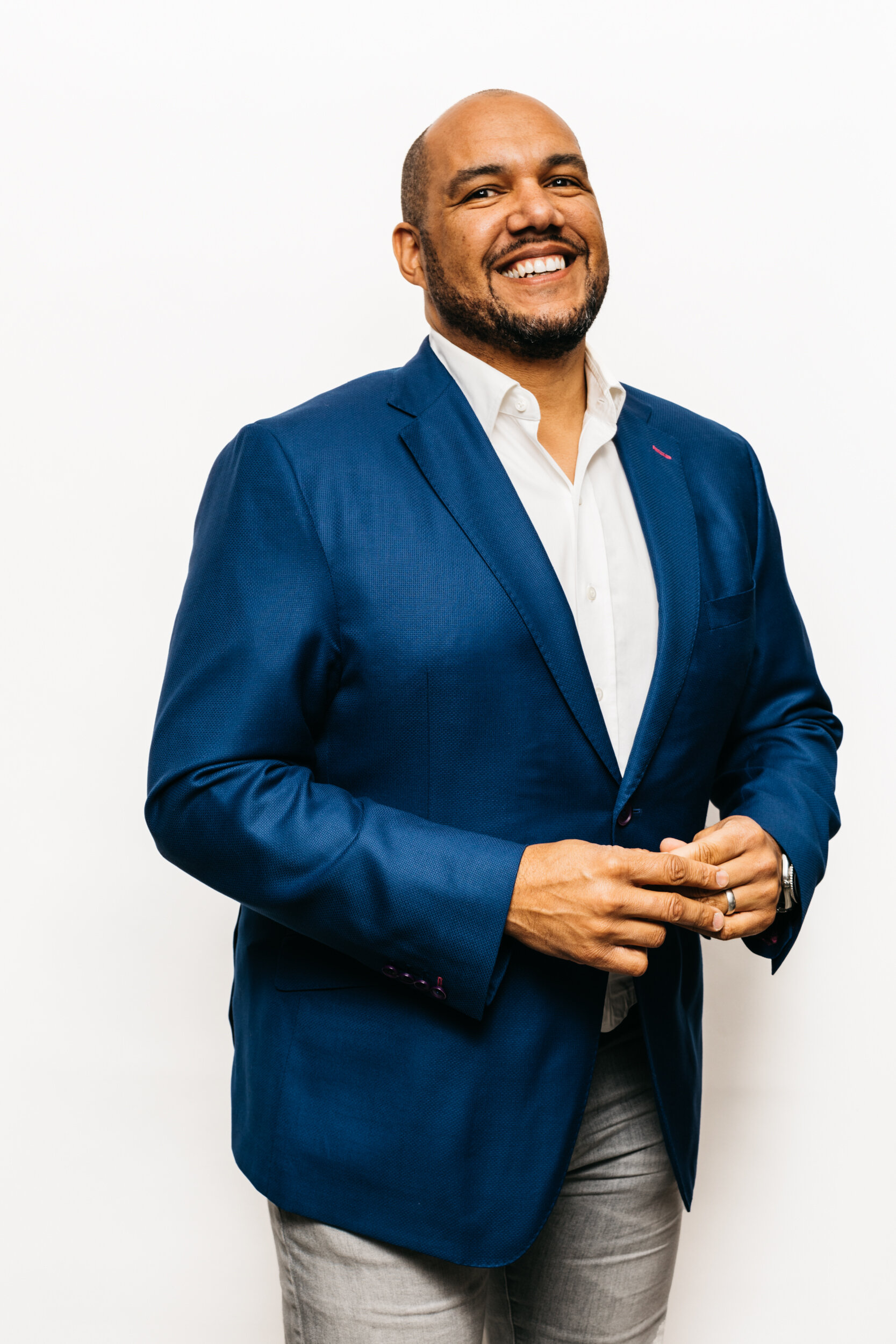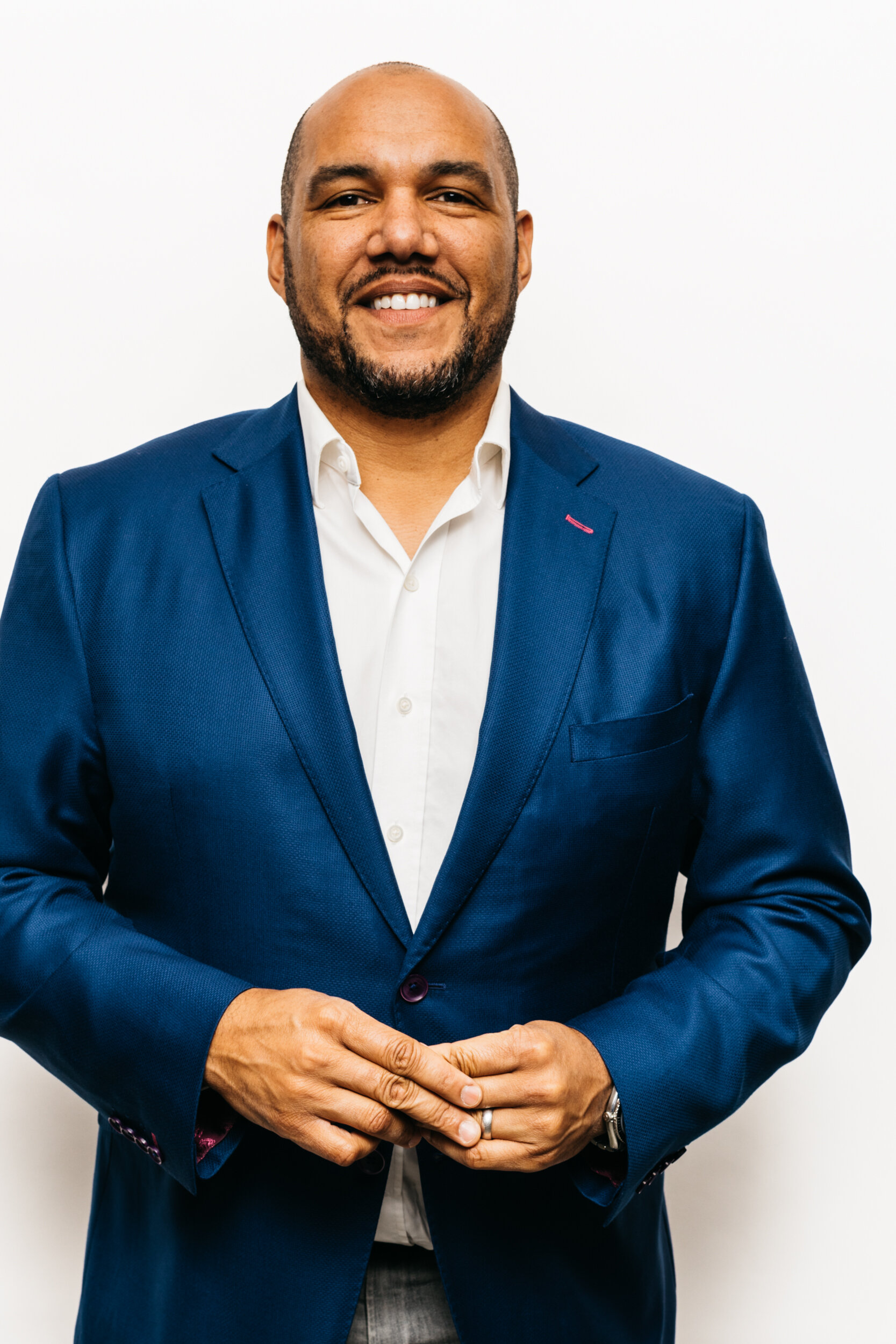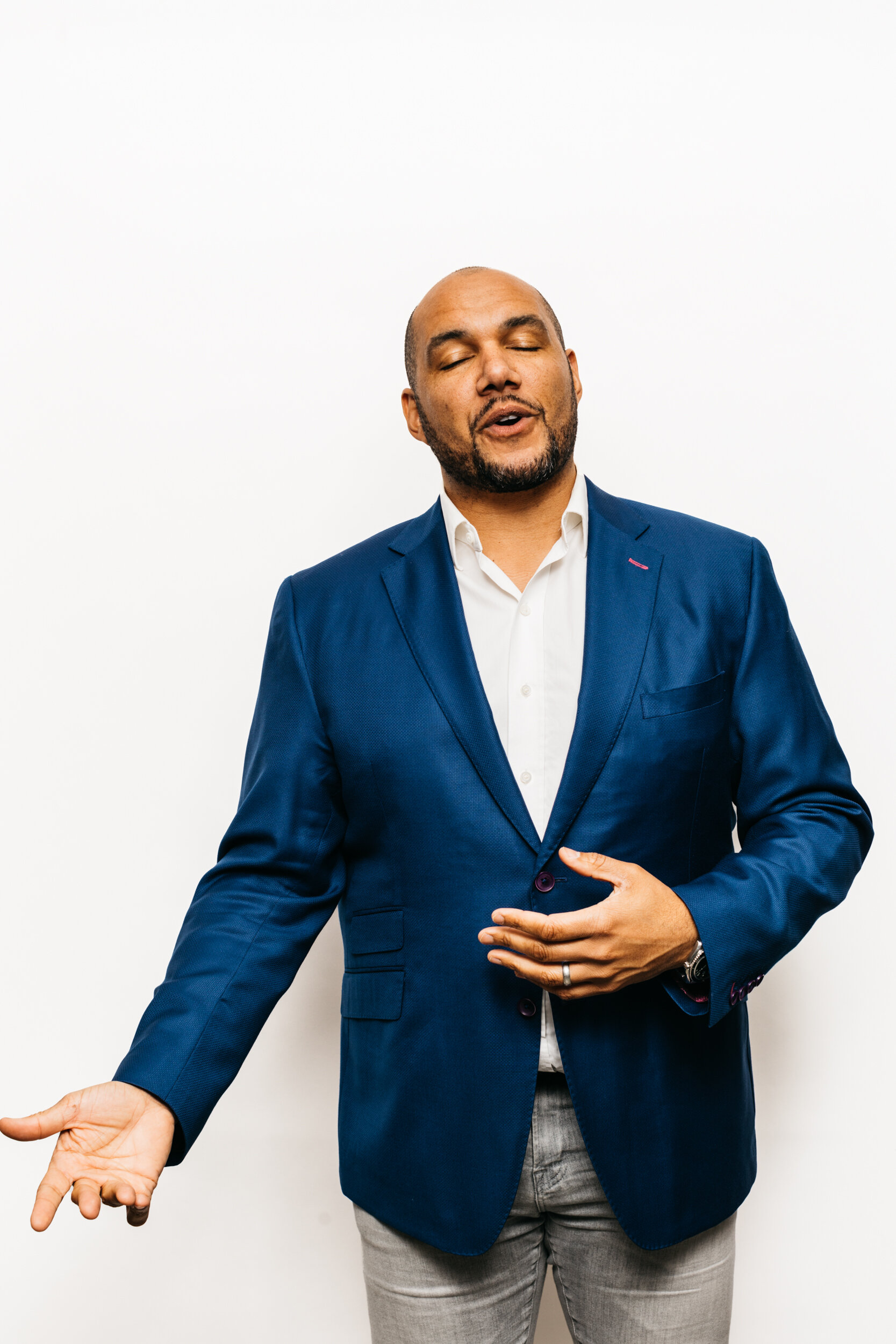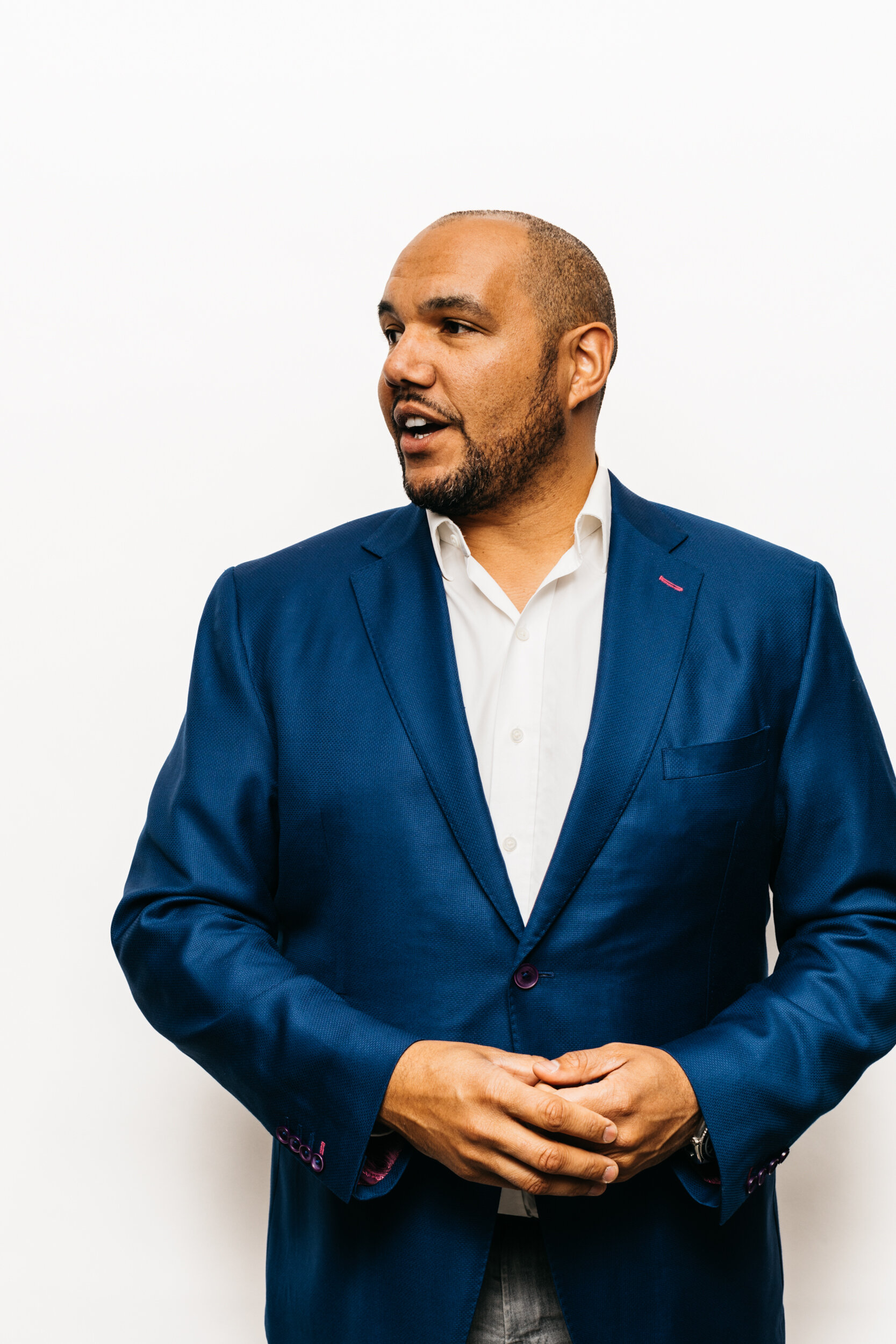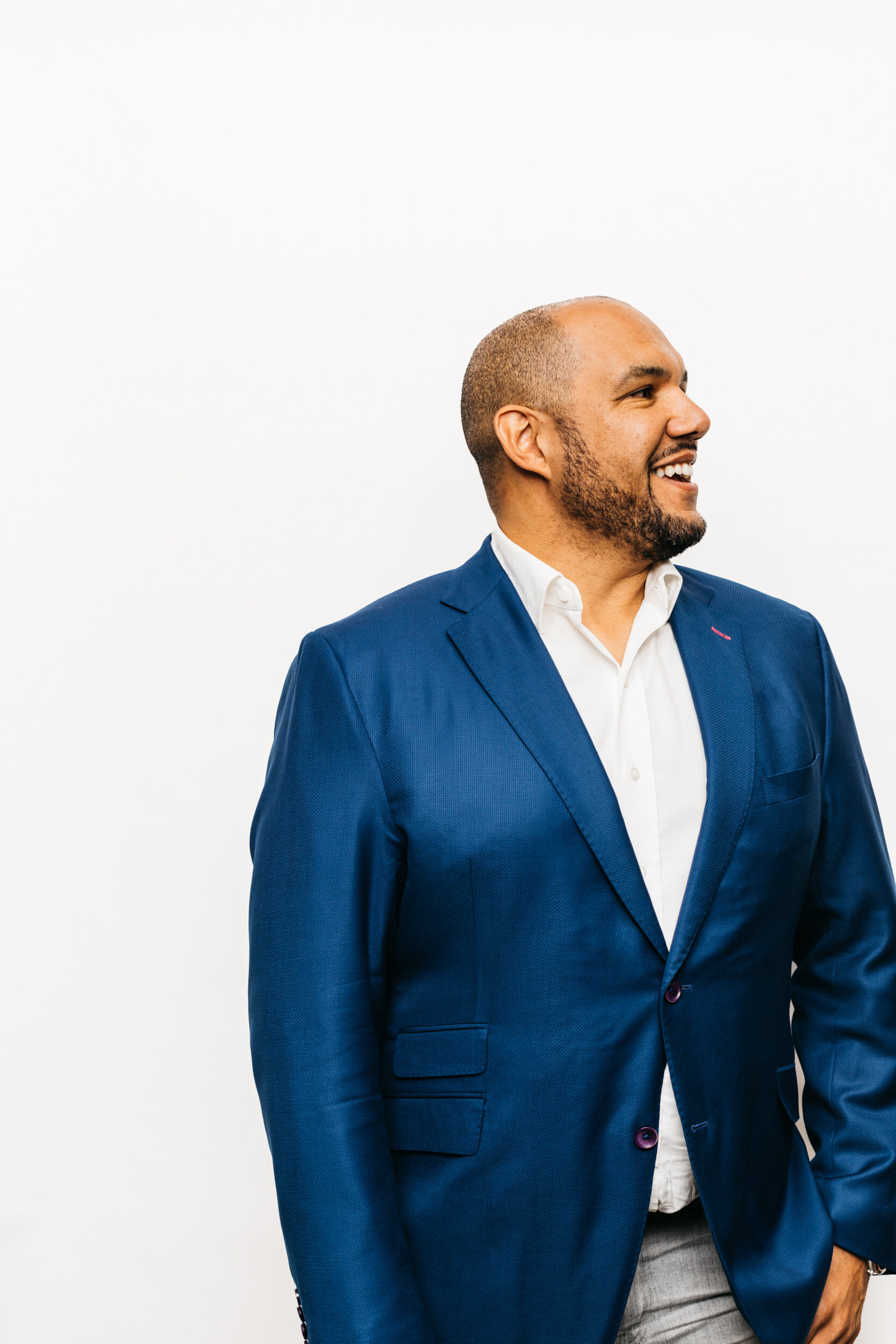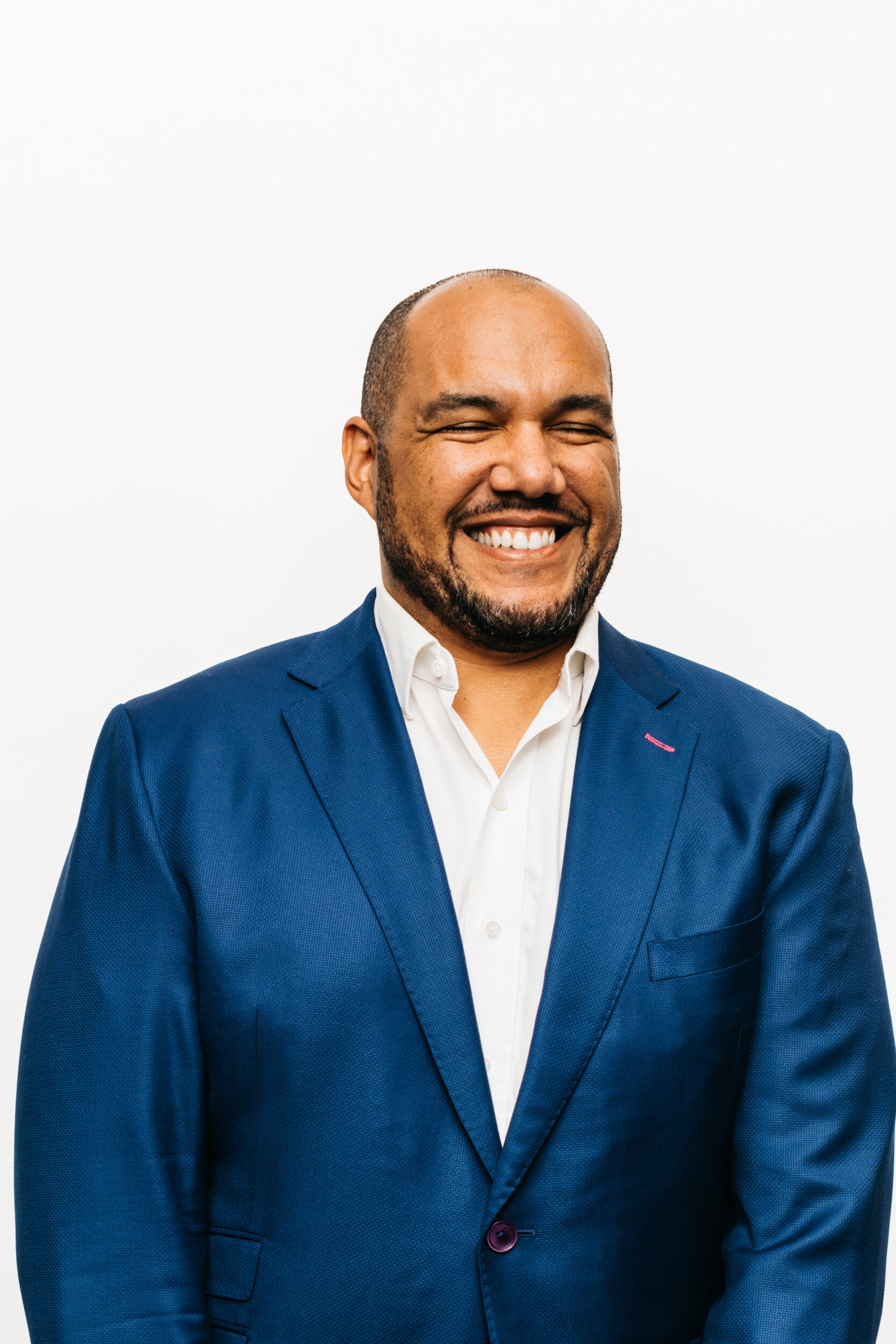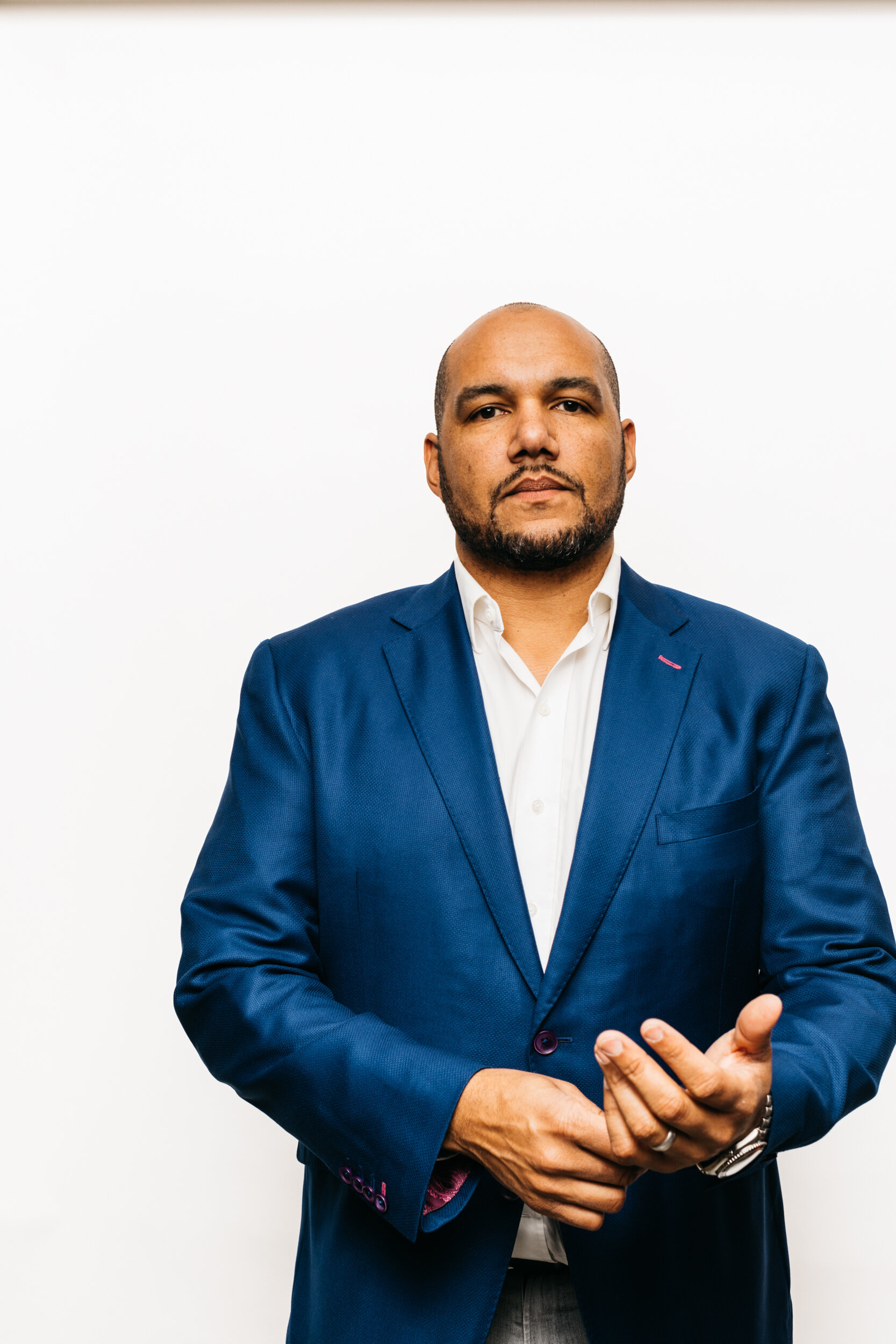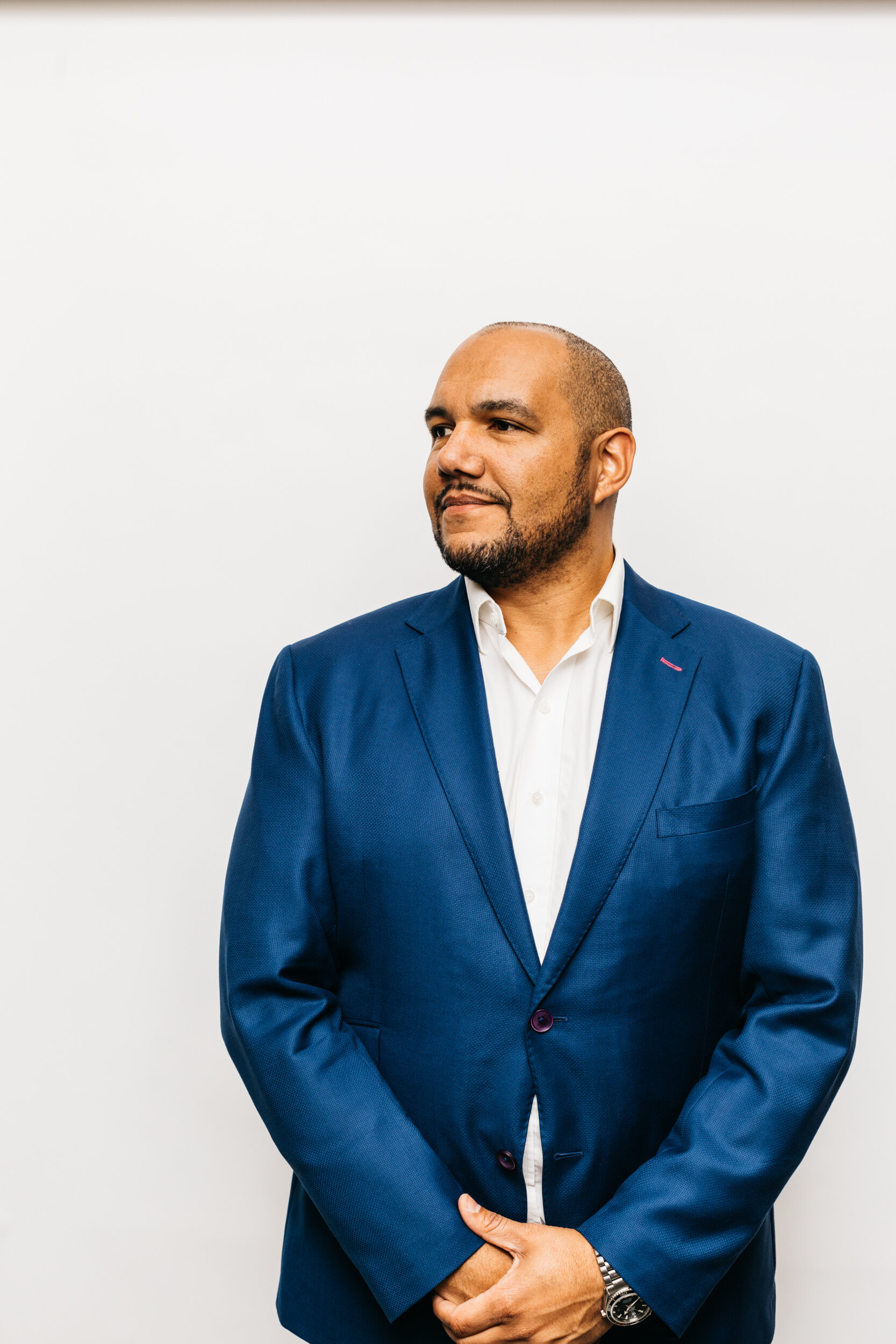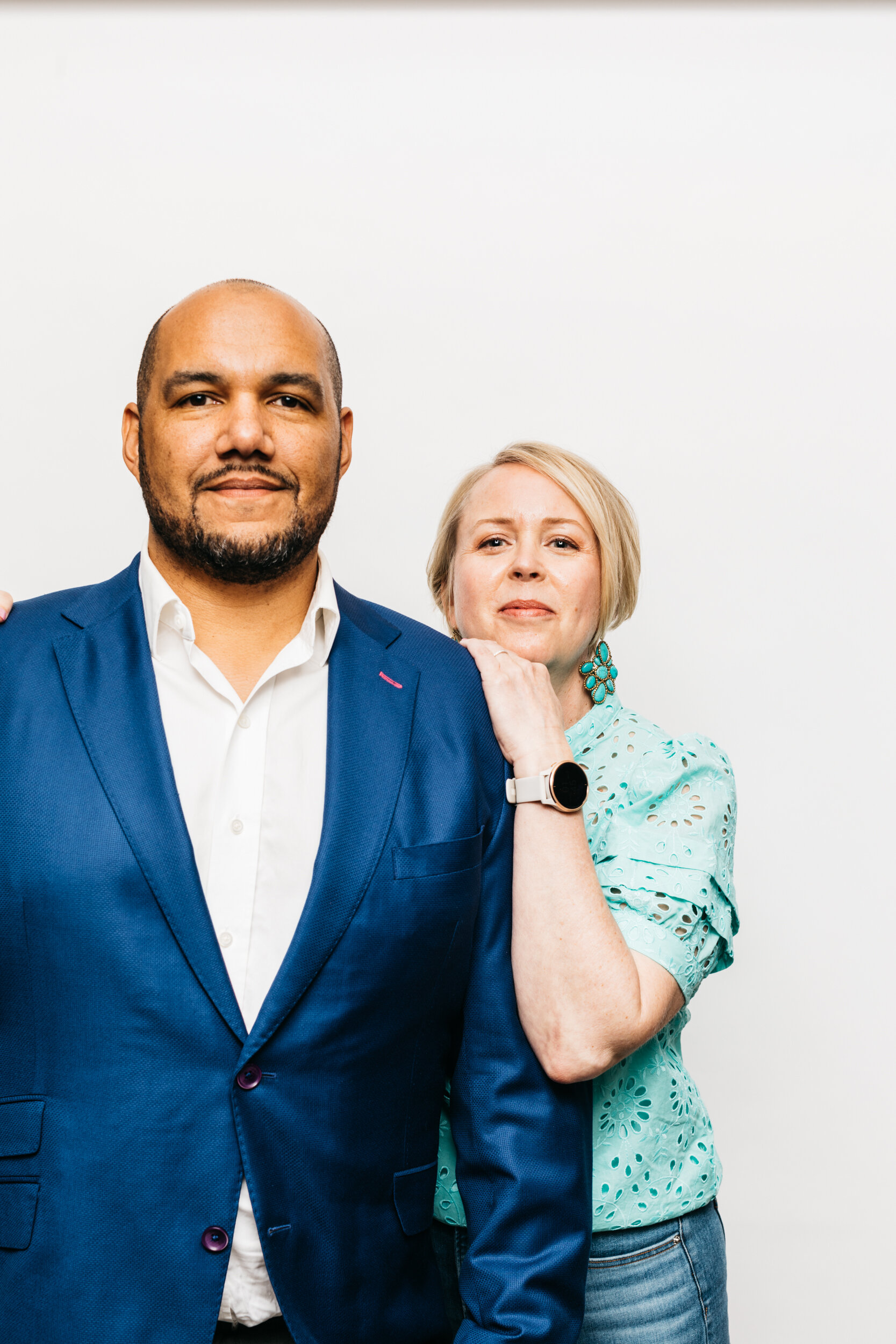Q & A: TJ Douglas, by Hadley Douglas
My husband, TJ, and I own and run The Urban Grape together, and as such we are often interviewed together as well. I always feel like journalists never ask the right questions of TJ, so when Edible Boston asked me to interview him for this issue’s Q&A, I jumped at the chance. These are the things we talk about almost every night, over a glass of wine, and often with our children giving their thoughts, too. We’re so lucky to be leading some of the necessary changes in the wine industry, and hope this conversation inspires you to sip more consciously, and drink more progressively.
HADLEY DOUGLAS: TJ… hi! It’s so fun to finally interview you!
TJ DOUGLAS: Hi, Babes! Let’s do this.
HD: It has been a year since the murder of George Floyd. Can you talk about the impact this past year has had on you?
TJD: Wow. Going deep fast, huh?
HD: Yup. Diving right in.
TJD: This past year has forced me to hone in on my life as a Black man, which is something that I’ve never really been able to do before. I’ve been able to seek out other Black people, and they seek me out, too. We’ve been building our tribe. It’s also the first time I’ve told my story in the wine world through the lens of a Black man. I never felt comfortable doing that before. It’s been a relief and I’ve found a new piece of myself.
HD: The racial reckoning of the last year wasn’t the only pressure you were handling. We’ve also been dealing with COVID. How did that impact The Urban Grape?
TJD: Truthfully, COVID was a blessing for us because it forced us to revitalize the energy of The Urban Grape. We’ve always run our business differently than other people, but keeping our doors closed for over a year allowed us to be entrepreneurs again and helped us flourish— despite the pandemic, despite the racial reckoning. We found our voice this year, and our business is more successful because of it.
HD: You’ve always been committed to making hospitality spaces feel more welcoming to everyone. How have you reimagined what hospitality can look like, post-COVID?
TJD: People were trapped in their homes for over a year, and the traditional ways that we used to provide hospitality are different now. We had to learn to make virtual wine tastings hospitable—and these were not even a thought before the pandemic! It was not just about how to create a great experience, but how to create a great experience that kept people safe. Also, we created spaces for the “nontraditional” wine consumer, the BIPOC people in our community who were made to feel like wine was not for them. We created spaces for them with education, so they could feel comfortable. And that’s exactly what hospitality comes down to—feeling comfortable.
HD: We created The Urban Grape Wine Studies Award for Students of Color in June of 2020 and put our first two students through the program this year. Applications just opened for our next round of students that will start in the fall. What do you hope the legacy of this program will be?
TJD: Easy: The legacy is going to be that BIPOC consumers will finally see themselves in wine spaces. This isn’t about The Urban Grape; this is about the wine industry as a whole and how it will have to change. I hope this program can be an inspiration not only for our industry, but for other industries, too, to level the playing field. To even let us ON the playing field!
HD: You’ve interviewed some pretty amazing people this year—Mary J. Blige, Charles Woodson, Robin McBride, Coral Brown! In so many conversations you’ve had, there’s a desire to be seen as an expert wine professional who happens to be Black, as opposed to a Black wine professional. Can you explain the difference?
TJD: For this past year there’s been a focus on seeking out BIPOC wine professionals so they can talk about diversity issues and give some insight on how to fix them, which is a double-edged sword because we didn’t create these problems to solve, but our voices also need to be heard. But, what we stopped talking about was … wine! So many of us are longtime professionals in our trade who are really good at it, but that went by the wayside. The media just wants to talk to us because we’re Black, not because we know what we’re talking about …
HD: … like to check a box?
TJD: Exactly. I’m trying to focus on getting back to talking about wine—including the diversity issues in wine—as opposed to being just a Black person that checks a box.
HD: They don’t even ask the interesting and thoughtful questions, which is why I’ve always wanted to interview you, to shine a light on the things we talk about with each other. For instance, can you explain some of the issues that keep Black winemakers’ products out of our local stores?
TJD: This is important to talk about. It starts in the beverage industry right at the very top with the distributors, wholesalers and conglomerates. They don’t market Black-produced wines—or any fine wine—to BIPOC people, but then they say there’s no audience for distribution. On the other side, it takes so much money to build a brand, and Black producers typically don’t have the financial capacity to build to a level where they can ask for distribution. What we’re trying to do now is use The Urban Grape’s platform to build connections between consumers and winemakers, so that the wholesalers and distributors see that there is a huge untapped market here. We’re also trying to build the pathway to capital between the banks and the actual winemakers. There are so many different pieces to it, but we can speak with some honesty about the real issues and try to make some changes. That’s the first step.
HD: Consumers are familiar with the idea of the urban “food desert.” Could you talk about your concept of the urban wine desert, and how that minimizes the experiences of BIPOC wine consumers?
TJD: If you’re growing up in an undercapitalized area, you live without a grocery store and rely on the corner store with cheaper, less healthy, more processed food. The grocery store is so far away that it’s just easier to grab Doritos and a hot dog for dinner every night. As opposed to a wealthier neighborhood with a grocery store where you can easily access fresh and healthy food. So, if you don’t have a grocery store nearby, how are you ever going to have a fine wine store in your neighborhood? Instead you have a ton of liquor stores. This keeps whole segments of the beverage industry out of these neighborhoods, and puts cheap, sugary, high-alcohol drinks onto the shelves. The alcohol mirrors the types of commercialized food you see in the corner stores. Whereas in the wealthier neighborhood you have wine that isn’t necessarily expensive, but is high-quality, organic and thoughtfully made. It’s not mass-produced alcohol. Again, this comes down from the top of the industry and it has created generations of people that don’t know these other products exist! It’s time to open up these neighborhoods and teach them about all the products that are out there.
HD: Given the overwhelming obstacles that face BIPOC consumers and producers, if you could wave a wand and change one thing about the wine industry, what would it be?
TJD: [Silence]
HD: Good one, huh?
TJD: If I could wave a wand?
HD: Yup.
TJD: I would wave a wand to take out the pretentiousness of the wine industry. Take the pretension away from the self-proclaimed wine connoisseurs, from the reviewers, from the expensive wineries saying you can only visit if you’re from our world. Doing this would take away the intimidation that keeps out new, and even current, wine drinkers. Not just BIPOC, either—everyone. There’s a pretentious heartbeat in our industry that just needs to stop.
HD: Great answer! There’s been a lot of focus on Black Joy this year. What does that phrase mean to you?
TJD: Black Joy to me is the opportunity to finally be the person that I’m supposed to be, and to celebrate that. To be able to celebrate being yourself, and why you’re proud of yourself—as well as sharing that pride … that’s Black Joy.
HD: It’s been a really long and …
TJD: Oh, I should make a wine called Black Boy Joy!
HD: … and challenging year …
TJD: It’ll be a blend! [Laughs]
HD: [Laughing] Good one. That was funny. Looking back on this long and exhausting year, what is the joyful wine memory that stands out for you?
TJD: It was popping a bottle of Cristal with my beautiful wife to celebrate the endowment of our Wine Studies Award at $200,000 raised. Remember that?
HD: Yes, but I thought it was Dom Perignon.
TJD: You’re right. 1990 Dom Perignon. I can still taste it. That was a great moment.
HD: I agree. The Urban Grape’s tag line is “Drink Progressively,” which refers to drinking by the body of the wine instead of by the varietal or region. What are some other ways that our community can drink progressively this year?
TJD: Drink Progressively has so many meanings. This year, I challenge everyone to take your blinders off and support people who were previously left out of the wine industry. On our website you can shop AAPI producers, Black producers, Latinx producers, LGBTQ producers—create your own progressive movement within a glass of wine.
HD: Last question. What do you think the biggest misconception is that people have about us?
TJD: That I do everything for The Urban Grape myself. We try to make it clear that you sell the store and I sell what’s in it, but people still think it’s all me.
HD: People don’t get what a team we are.
TJD: Yeah. We’re a team and this is our business, together.
HD: Love you.
TJD: Love you, too.
To “Drink Progressively” with The Urban Grape, please visit theurbangrape.shop or follow them on Instagram @urbangrape. For more information about the Wine Studies Award for Students of Color, or to apply by June 30, please visit the “Change” section on their website.

